
Sharing knowledge on the transition of coal regions Study visits of partners from Ukraine to Polish mining regions
Representatives of national and regional public institutions and non-governmental organisations from Ukraine met with representatives of the Silesian Marshal's Office, Silesian cities, enterprises and scientists to talk about the experiences and challenges connected with the transition of mining regions. The virtual study visit organised by the Institute for Ecology of Industrial Areas (IETU) and the Central Mining Institute (GIG) began on the 25th of February 2021 and was part of a project aimed at exchanging good practices in the area of transition of mining regions and the energy sector. The project focused on the exchange of knowledge and good practices between coal regions in Poland and Ukraine is implemented by the National Fund for Environmental Protection and Water Management and the World Bank in consultation with the European Commission.
The government of Ukraine, just like the government of Poland, is currently developing a coal sector transition plan, the aim of which is to create favourable conditions for the development of new sectors of the economy and creation of new jobs, providing equal opportunities for miners and employees in industries directly connected with the mining sector.
This pilot programme builds bridges between the coal regions of Poland and Ukraine. The exchange of experiences fits perfectly with the idea of the Green Deal, just transition process, as well as the European Union's policy towards neighbouring countries, especially Ukraine, and is based on the experience in exchange between coal regions as part of the European initiative of coal regions in transition - said Anna Sobczak from the European Commission, DG Energy - We are very interested in the effects of this twinning venture, which may also be useful in implementing just energy transition activities under the EU Initiative for Coal Regions in Transition in the Western Balkans and Ukraine implemented by the European Commission together with the World Bank, the European Bank for Reconstruction and Development, the Energy Community, the National Fund for Environmental Protection and Water Management and the College of Europe in Natolin.
With the support of the European Commission the National Fund for Environmental Protection and Water Management and the World Bank actively support Ukraine on the path towards just transition.
Europe's energy transition can be complete and effective provided that not only all EU Member States take action, but also if our neighbours join us on our way towards sustainable development - emphasised Marcin Jamiołkowski, Deputy Director of the External Funds Department, National Fund for Environmental Protection and Water Management - We are all aware that the problems of mining regions pose a gigantic challenge. In overcoming all the problems which may be encountered here, the support of partners who have experience in implementing investments is of particular value.
The National Fund for Environmental Protection and Water Management has been supporting environmental projects for over 30 years. This includes projects in the area of reclamation of degraded areas as well as improvement of natural values and economic conditions.
For the World Bank, initiatives of this type are of particular importance because they are part of our strategy of supporting green recovery after the pandemic - said Filip Kochan from the Polish Office of the World Bank - Coal transformation and just transition are issues that we have already started to deal with both in Poland and Ukraine, and the importance of which is expected to grow over time as the world is setting for itself more and more ambitious targets in terms of the environment and climate.
In times of discussions about climate change and climate neutrality, a just transition of the economy and innovative technologies that are the basis for the transition of the energy sector the exchange of information, knowledge and experience is extremely important, because the challenges faced by regional authorities and local regions are really serious.
Wojciech Kałuża, Deputy Marshal of the Silesian Voivodeship, mentioned that the transition of the Silesian region began the technological and economic transition of the Silesian region, but at the same time brought many painful experiences related to the closing of workplaces and the accumulation of social problems. However, today there is no doubt that it is the self-government that can best care for what constitutes the common welfare.
The program of four virtual meetings (25-26 February and 2-3 March) was prepared by experts from IETU and GIG, in cooperation with representatives of the Silesian Marshal's Office, Silesian cities (Bytom, Katowice, Zabrze) as well as Demex and SRK SA companies.
We want to present both good and bad experiences, paying special attention to see which mistakes should be avoided. We will make every effort to ensure that this knowledge is transferred in a reliable and comprehensive way and will enable the preparation of the transition process of coal regions in Ukraine, which is difficult, but properly carried out, may result in new cooperation models and tangible benefits in the future - said Jan Bondaruk, Deputy Director for Environmental Engineering, Central Mining Institute.
The visits are to facilitate the establishment of cooperation between regions and dissemination of proven solutions useful in planning the transition process of the region in terms of legal regulations, as well as organisational, economic, environmental and social solutions.
The most important stage here is planning of the transition process, because it is the moment that you need to decide on a number of social issues, such as where people will work if the mines are closed, what they will do for a living, where their children will learn and what costs will be incurred. If this has been prepared, it will be half the battle - noted Valentina Moskalenko, Advisor to the Prime Minister of Ukraine on Regional Policy.
The participants of the first visit were people most interested in the transition process who came from the cities of the Lviv, Dnipropetrovsk, Luhansk and Kryvyi Rih regions - local government bodies, social organisations, associations and representatives of state authorities.
It is very important for us that all parties at the local level have access to knowledge and information, because at the central level we create the framework and the scope of the state support, but the implementation process takes place at the local level - added Valentina Moskalenko.
All participants admitted that the current epidemic situation had thwarted the plans of Ukrainian representatives to visit Poland and made direct meetings impossible.
Nevertheless, the topic we are discussing is so important that we have decided to organise on-line visits - said Piotr Cofałka, Deputy Director for Research and Development, IETU - This formula will also be maintained during subsequent visits. Although it has some limitations in comparison to a stationary visit, it allows the participation of a larger number of stakeholders than originally planned. By adapting the visits to a new form, we plan to enrich them with film materials that will be created in the near future. I am glad that during the first meeting, a good interaction between participants and speakers has been achieved. This allows the provided information to be supplemented with aspects that are of interest to the representatives of the Ukrainian party. There also appear new topics that we will take into account during the next visits.
In the first meeting 31 participants from Ukraine took part.
Planning of the region's transition process, pre-accession and post-accession reforms and plans for 2021-2027 were presented by Dariusz Stankiewicz from the Department of Regional Development, Marshal's Office of the Silesian Voivodeship. Afterwards, examples of specific projects were discussed.

-
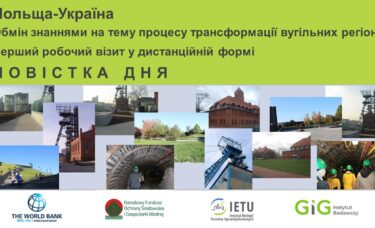
- I study wisit – Sharing knowledge on the transition of coal regions Study visits of partners from Ukraine to Polish mining regions – 25-26.02.2021 and 2-3.03.2021
-
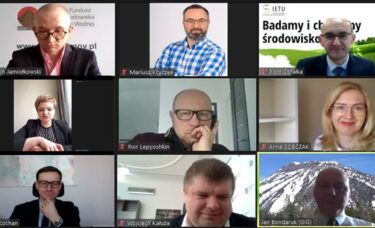
- I study wisit – Sharing knowledge on the transition of coal regions Study visits of partners from Ukraine to Polish mining regions – 25-26.02.2021 and 2-3.03.2021
-

- I study wisit – Sharing knowledge on the transition of coal regions Study visits of partners from Ukraine to Polish mining regions – 25-26.02.2021 and 2-3.03.2021
-
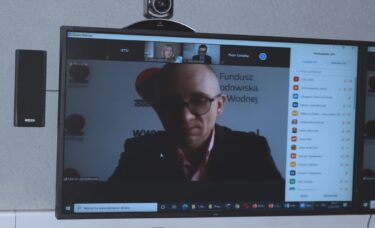
- I study wisit – Sharing knowledge on the transition of coal regions Study visits of partners from Ukraine to Polish mining regions – 25-26.02.2021 and 2-3.03.2021
-
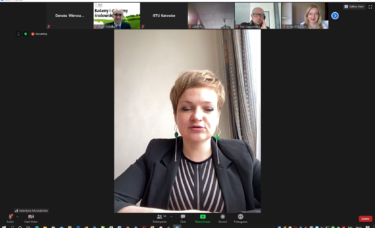
- I study wisit – Sharing knowledge on the transition of coal regions Study visits of partners from Ukraine to Polish mining regions – 25-26.02.2021 and 2-3.03.2021
-
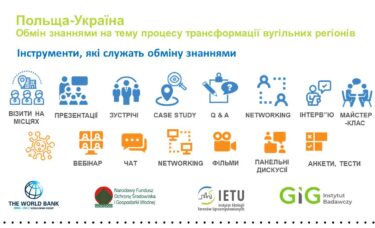
- I study wisit – Sharing knowledge on the transition of coal regions Study visits of partners from Ukraine to Polish mining regions – 25-26.02.2021 and 2-3.03.2021








